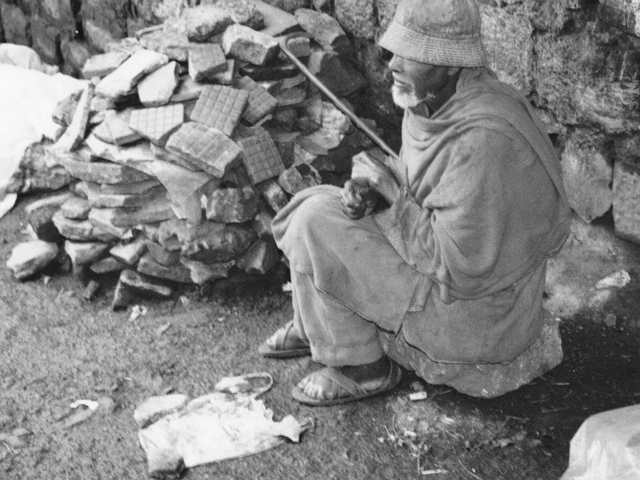Zimbabwe’s Homeless Crisis: Battling for Survival Amidst Economic Struggles”
In the heart of Zimbabwe, a desperate struggle for survival unfolds on the streets as homeless families resort to begging for sustenance. Meet Gladys Mugabe, a 69-year-old facing the harsh realities of life with her disabled son in Harare Gardens, a once-recreational park turned makeshift home.
The backdrop to this dire situation lies in Zimbabwe’s troubled economic history, marked by the departure of white commercial farmers in 2000 and subsequent periods of hyperinflation, reaching an alarming 172% in July of the previous year, according to the International Monetary Fund.
ISS Africa estimates that in 2019, two out of five Zimbabweans lived in extreme poverty, surviving on less than US$3.20 per day. Despite a projected decline in the poverty rate to 20% by 2043, the current path indicates that 4.7 million Zimbabweans will still grapple with extreme poverty.
As Mugabe and others find themselves in open-air dwellings, homelessness becomes an enduring crisis. Locals like 43-year-old vendor Trynos Munzira voice concerns about the safety of public spaces, claiming that parks are now dominated by the homeless, affecting the quality of life for regular citizens.
Nonhlanhla Mandundu, a 33-year-old Harare resident, highlights the challenges faced by the community, citing issues of sanitation as homeless individuals resort to picking leftover food containers from rubbish bins.
Zimbabwe’s housing shortage exacerbates the crisis, with an estimated 1.25 million units needed nationwide, translating to a backlog of five million citizens, over 40% of the total population. More than 1.2 million Zimbabweans remain on the government’s national housing waiting list, a list unlikely to include individuals like 21-year-old David Paina, an orphan seeking refuge on the streets after escaping abuse.
Despite the evident homelessness crisis, authorities, including Minister of Local Government July Moyo, appear hesitant to address the issue. The aftermath of the land reform program, initiated over two decades ago, has seen homeless families proliferate across towns and cities.
Teenage parents like 19-year-old Baba Ano and their children find themselves on the streets due to varied circumstances, experiencing evictions, moving between lodgings, and ultimately settling in places where rent is not required.
In the face of harsh weather conditions, these homeless families persevere, with limited choices but to soldier on. Mugabe’s plea for help echoes the broader need for intervention, as there are no official statistics from the Ministry of Social Welfare documenting the number of homeless families.
Local authorities acknowledge the crisis but lack definitive solutions, with public spaces like Harare Gardens, Mabelreign, and Africa Unity Square overrun by homeless families. The government’s Social Welfare Department is suggested as a potential avenue for addressing this growing issue.
Human rights activists, including Peace Hungwe of PeaceHub Zimbabwe, point out that homelessness may not solely result from housing shortages. Some individuals may be ex-convicts struggling to reintegrate into society, compounding the complexity of the crisis.
As the authorities remain indecisive, Mugabe, like many others, counts immeasurable losses, having lost her home and belongings. The gathering storm of Zimbabwe’s homelessness crisis calls for urgent attention and comprehensive solutions to alleviate the suffering of its vulnerable population.

